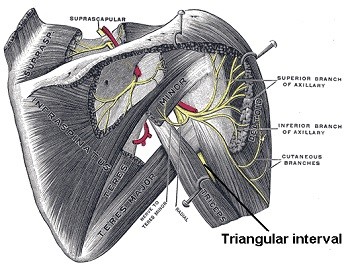If you have a work-related rotator cuff injury, you may need the help of a Missouri workers’ compensation attorney to help you receive your benefits.
 Rotator cuff is a group of muscles and tendons connected to the bones of the shoulder joint. These tendons and muscles are responsible for the shoulder joint’s range of motion. However, the nature of this shoulder region makes it highly susceptible to work-related injuries. There are different factors that can lead to the occurrence of rotator cuff injuries.
Rotator cuff is a group of muscles and tendons connected to the bones of the shoulder joint. These tendons and muscles are responsible for the shoulder joint’s range of motion. However, the nature of this shoulder region makes it highly susceptible to work-related injuries. There are different factors that can lead to the occurrence of rotator cuff injuries.
Brief Facts On Rotator Cuff Injuries
It is said that about half of the total cases of rotator cuff injuries improve by themselves, provided certain measures are taken. These include applying ice to the affected area about three times a day, taking anti-inflammatory drugs, and refraining from activities that could worsen the problem. Slings may also be used to support the arm during the day, but these should not be used for extended periods as they can aggravate the problem by causing stiffness in the affected region.
Missouri workers’ compensation lawyers recommend that medical attention should be sought for more serious cases of rotator cuff injuries. Treatment options in these cases may include the use of steroid injections to reduce pain and inflammation and physical therapy to improve flexibility and build strength. Surgical procedures as well as partial or total shoulder replacement may also be needed to correct rotator cuff injuries.
Causes of Rotator Cuff Injuries
Lifting – There is risk of rotator cuff injuries when you engage in activities that involve lifting of heavy objects, especially when done in an inappropriate manner. Lifting has the tendency to tear muscles or tendons in your shoulder; this may also result from pulling.
Falling – Rotator cuff injuries may also result from falling, which could occur under various conditions. For example, a construction worker or roofer could fall from a ladder or scaffolding. You may also fall if you accidentally hit your foot against something. It is normal for someone who is falling to try and break his or her fall with a hand or arm. However, this could tear or bruise a muscle or tendon in the shoulder, just as when you fall on your arm.
Repetitive Stress – Jobs and activities requiring repetitive motion also expose those who engage in them to the risk of suffering rotator cuff injuries. Painters, plumbers, factory workers, and carpenters are among those highly susceptible to these problems.
Seeking Workers’ Compensation Benefits
You should consider filing a claim for workers’ compensation benefits if you are sure your rotator cuff injury occurred while performing your job duties. Compensation benefits can help take care of the medical costs associated with your rotator cuff injury while also covering a significant portion of your lost wages. These benefits can also go a long way in helping you acquire new skills, if it is impossible for you to function well again on your previous job. You should inform your employer about a rotator cuff injury within 30 days of its occurrence and file a claim within a two-year period from the initial injury to improve your chances of getting your workers’ compensation benefits.
Consult with The Law Office of James M. Hoffmann at (314) 361-4300 to seek legal assistance in getting the compensation that you deserve.
Work Related Injuries
Photo credit: en.wikipedia.org via Flickr
